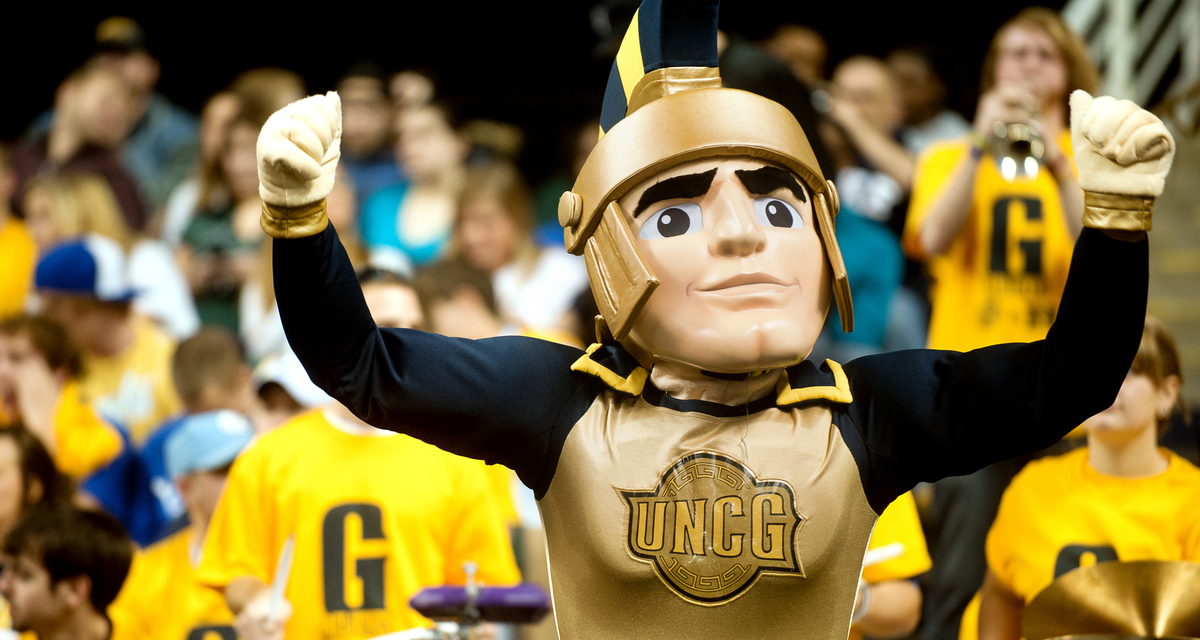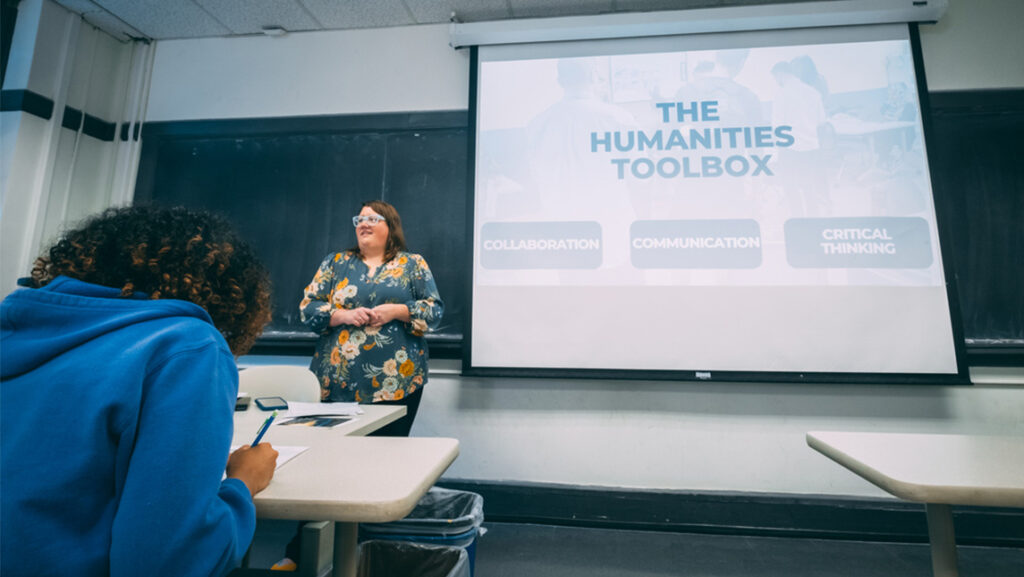Repost UNCG NOW
UNCG is one of eight universities across the nation to win the NCAA-Department of Defense (DOD) Mind Matters Challenge research grant that seeks to improve understanding of how to change the current concussion reporting culture.
The university was awarded $400,000 to research and develop a web-based behavior intervention package that helps increase sport-related concussion (SRC) reporting among NCAA student athletes.
Dr. David Wyrick, associate professor of public health education and director of UNCG’s Institute to Promote Athlete Health and Wellness (IPAHW), and Dr. Jeff Milroy, assistant professor of public health education and associate director of IPAHW, will lead all research and intervention development over the next three years.
Milroy accepted the award Feb. 5 at the NCAA national office in Indianapolis. UNCG was joined by fellow award winners UNC Chapel Hill, University of Georgia, University of Wisconsin–Madison, Arizona State University, Colorado State University, North Arizona University and the United States Air Force Academy.
“Right now, the public health issue is that a significant proportion of NCAA student athletes are not reporting sport-related concussion symptoms or events to coaches and other athletic personnel,” Milroy said. “We’re looking at factors such as social norms, attitudes and the roles of coaches, and we’re using innovative web-based strategies to target these specific factors.”
In some student-athlete populations, more than 50 percent of SRCs go unreported, which can lead to serious health risks. Wyrick and Milroy, along with their team of researchers, will look at ways to address this problem by using the Multiphase Optimization Strategy, an innovative, engineering-based methodology that provides an approach for building, optimizing and evaluating multicomponent interventions.
“All too often, behavioral interventions move from the development stage to large-scale evaluation with little thought to the independent performance or contribution of the primary intervention components,” Wyrick said. “Our approach will help ensure a final intervention package capable of producing a meaningful public health impact on concussion reporting.”
Launched in 2014, the NCAA-DOD Mind Matters Challenge includes $7 million in funding for a two-pronged approach: the research challenge and an education challenge. The eight research challenge winners were selected from more than 100 phase one proposals and from a subsequent field of 22 phase two finalists that included Duke University Medical Center, University of Oregon and University of Florida, among others.
To learn more about the challenge and the award winners, click here. For more information about UNCG’s IPAHW, visit athletewellness.uncg.edu.
UNCG NOW article by Alyssa Bedrosian



